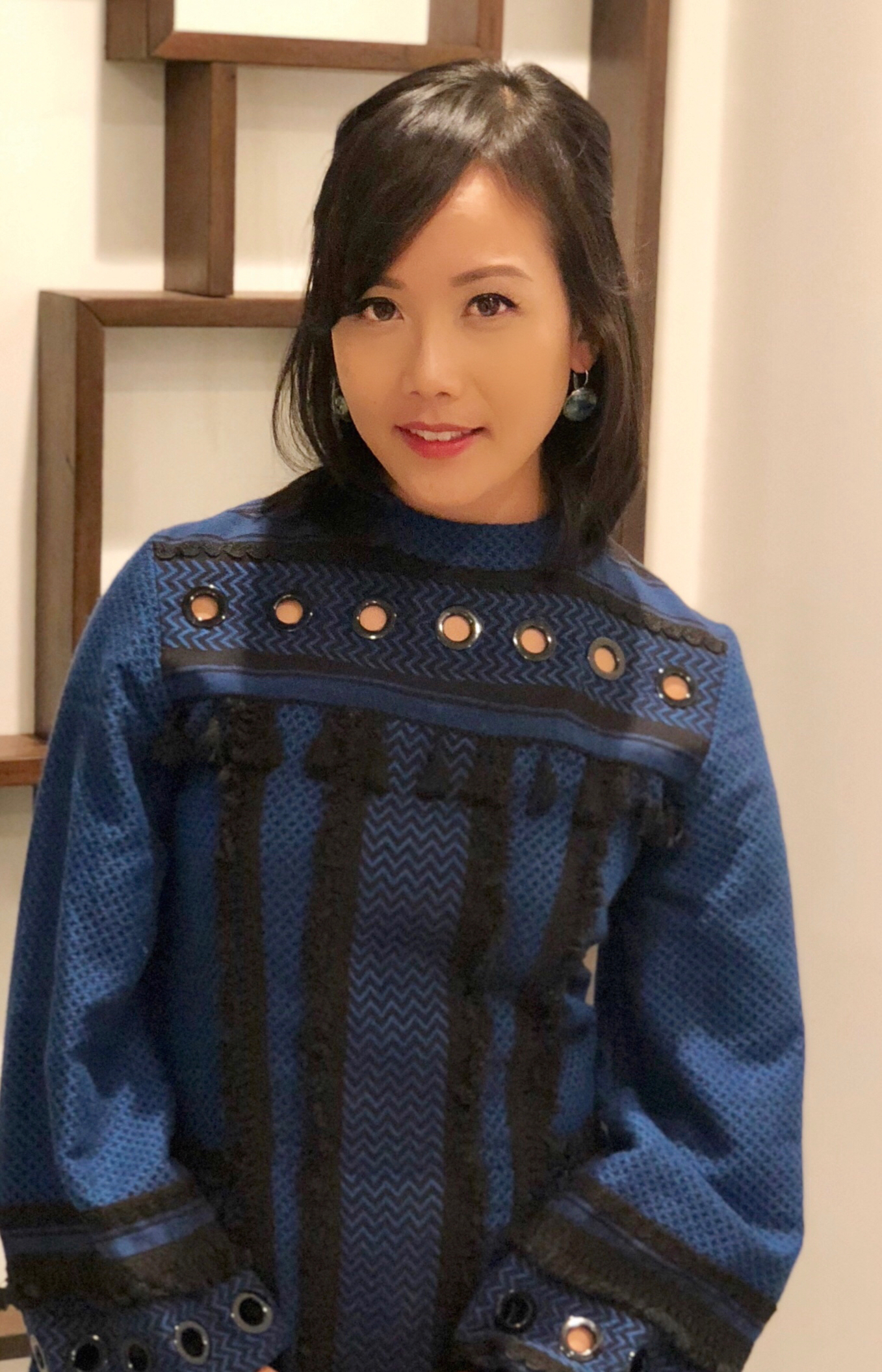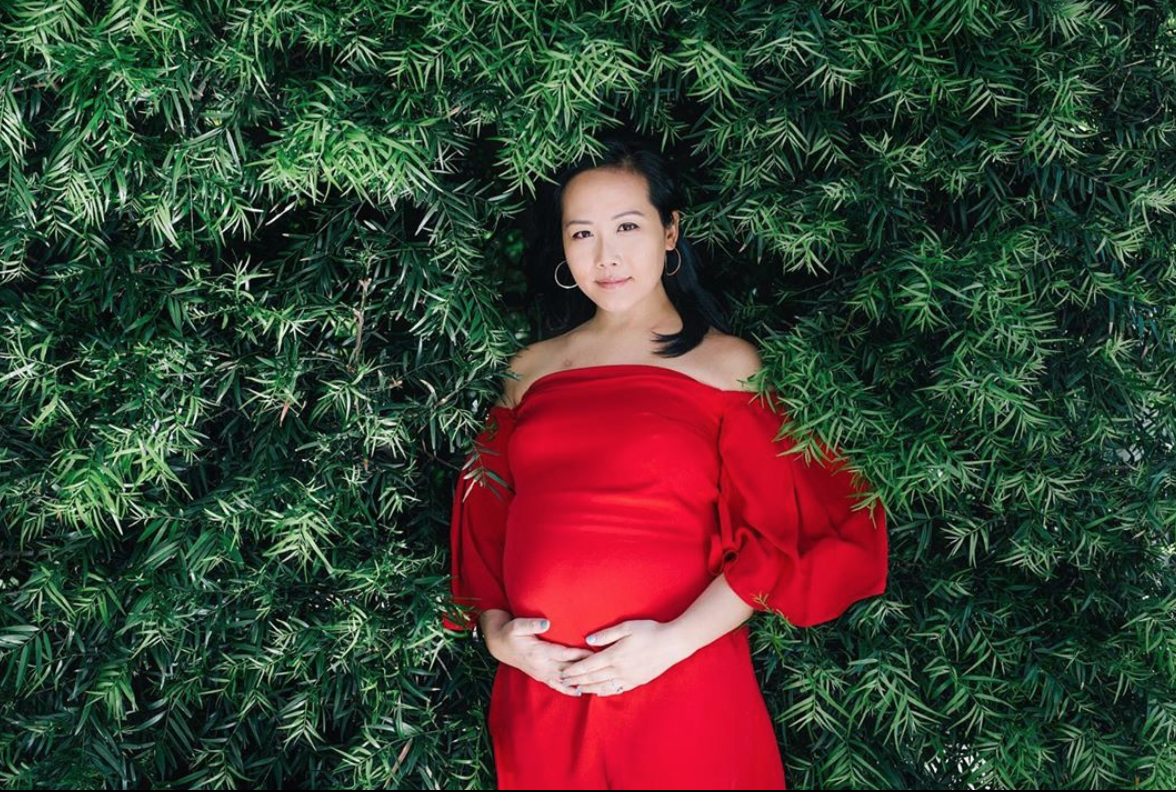For most of my life I’ve played what you might call “the narrative-writing optimist.” Dated guys who were all wrong but filled to the brim with “potential.” Set goals and get there, but it had to happen faster than anyone else.
I was blindly running on that hamster wheel, much like the rest of the world around me growing up in Silicon Valley. It would take something incredible to shake me out of that vicious cycle.
Cancer did the trick.
In December 2016, I was reporting for a TV news station in the Bay Area and two months from getting married when I was hit with a stage 3 non-Hodgkin lymphoma diagnosis. I was facing down an aggressive blood cancer that would require an aggressive chemotherapy regimen.
Almost 700 hours of it.
At some time during those long weeks that turned into long months, I remember stumbling into the bathroom in the middle of the night and almost losing my balance catching a glimpse of myself in the mirror.
What is that thing? It’s bald, pale, and most conspicuously – very, very sick.
I looked like a damn alien. The chemotherapy had robbed me not just of my long, black hair, but my eyebrows and eyelashes, too. The nausea, fatigue, debilitating aches and pains were already stubborn residents of my body. The hair loss had been fairly gradual.
But the image was incredibly pronounced for me. As someone who had to look at least presentable for her job on TV for a decade, having no hair was the start of a breakdown – of my identity and really, of my world as I had known it.
Accepting this role of “cancer patient,” regardless of how temporary I was told it would be, was excruciating. There was no manifestation of sick as powerful as my look during that jarring moment in the cold bathroom. This new reality completely exposed my fragility.
I found myself falling into depression, trying to reconcile the trauma of cancer with my identity. I knew cancer didn’t define me, but outside of that I was losing all grasp of who I was and what my purpose was. It was getting harder to answer by the day.
But here’s the thing: What’s hard can often lead to what’s real. Cancer and the trauma it introduced into my life ended up breaking me down, and then, breaking me open.
This led to the greatest lessons I’ve begun to learn and continue to work on each day. As odd as it may sound, I’m so grateful I got to kickstart this process earlier in my life. Here are some of my biggest reflections.
1. Embrace the quiet.
I was couch-ridden during those nearly 700 hours of chemo while people hustled outside and the world continued to spin. Sitting alone in silence was eerily uncomfortable and incredibly foreign. I didn’t know how not to pick up my phone to scroll through Instagram. My hand would find the remote and turn on ESPN without any thought.
Pre-diagnosis, I had so often spent time filling up my calendar and trying to keep busy. It was comforting to always have something to do. But by doing that, I was enslaving myself to an itinerary, a perpetual busyness. Usually none of it was building me up, it was just doing things to do things. I was not allowing myself to thrive.
The silence I was forced to sit through during cancer treatment led my mind to wander. At first it was longing for the past and anxiety about my future, but soon transformed during this time of pure nothingness.
I would stare out at the bay and just watch the ships cross the water slowly. For the first time in the four years I’d lived here, I realized I could see highway traffic, the cars appearing like dots of color moving along a distant track. I underwent this same routine, almost helplessly, every day.
I soon realized that I was meditating without even trying. I was just living the moment. No regrets, no wants – nothing to occupy the forefront of my mind. I learned to just accept the quiet, building up my mental strength. Staying in the present was fine-tuning my ability to focus. I was learning how to gradually grow the space between the stimuli around me and my reaction, something I’d often struggled with.
2. Lose yourself to find yourself.
I had to go through the darkness of depression to understand what light I could bring to others: the gift of connection. For my entire adult life, I had grown my craft of storytelling centered on news and information sharing. This was the paradigm through which I viewed my purpose in life.
Abandoning the assumed identity of news reporter and instead leaning into simply what I was – a human thrust into a traumatic experience – I learned what would make me truly happy would be to share the stories of those like me.
That’s how and why I began The Patient Story, a website devoted to bringing real hope to newly-diagnosed cancer patients and caregivers by sharing the experiences of those who’ve made it through to the other side.
Now I find more purpose in what I do than I ever have in my life. That’s not to say that hard situations will change a career trajectory, that’s just what happened with me. What I do believe is that if you let yourself to embrace the unknown, you will stumble upon new perspectives and ideas, many times about yourself.
3. Break down invisible barriers.
To be barely 30-years-old and have to think about my mortality warped my sense of connection to my peers. During rides to the hospital and to clinic, I would see people my age walking around seemingly without a care in the world. Walking their dogs. Buying groceries. That’s not to say they didn’t have real problems to deal with, but were they waking up worrying about whether they were going to live or die? Probably not.
What lifted me when I felt suffocated by that loneliness was how many people reached out to me with messages of kindness after learning I had cancer. People I hadn’t seen or spoken with in years, even those I had only met once or briefly.
These simple gestures opened my eyes to how beautiful even the most mundane interactions can be, if we could only break down those invisible barriers keeping us from connecting with one another, so many of them driven by fear.
Fear of rejection. Fear of being considered… weird.
But I basked in the energy of all these people who felt compelled to share their love with me. It’s partly what drove me to create The Patient Story, to want to invest my life and time in helping others to feel less lonely during such a vulnerable time.
We don’t need trauma to catalyze this true joy.
All we need is more connection to each other, and above all, to ourselves.
Follow us here and subscribe here for all the latest news on how you can keep Thriving.
Stay up to date or catch-up on all our podcasts with Arianna Huffington here.


